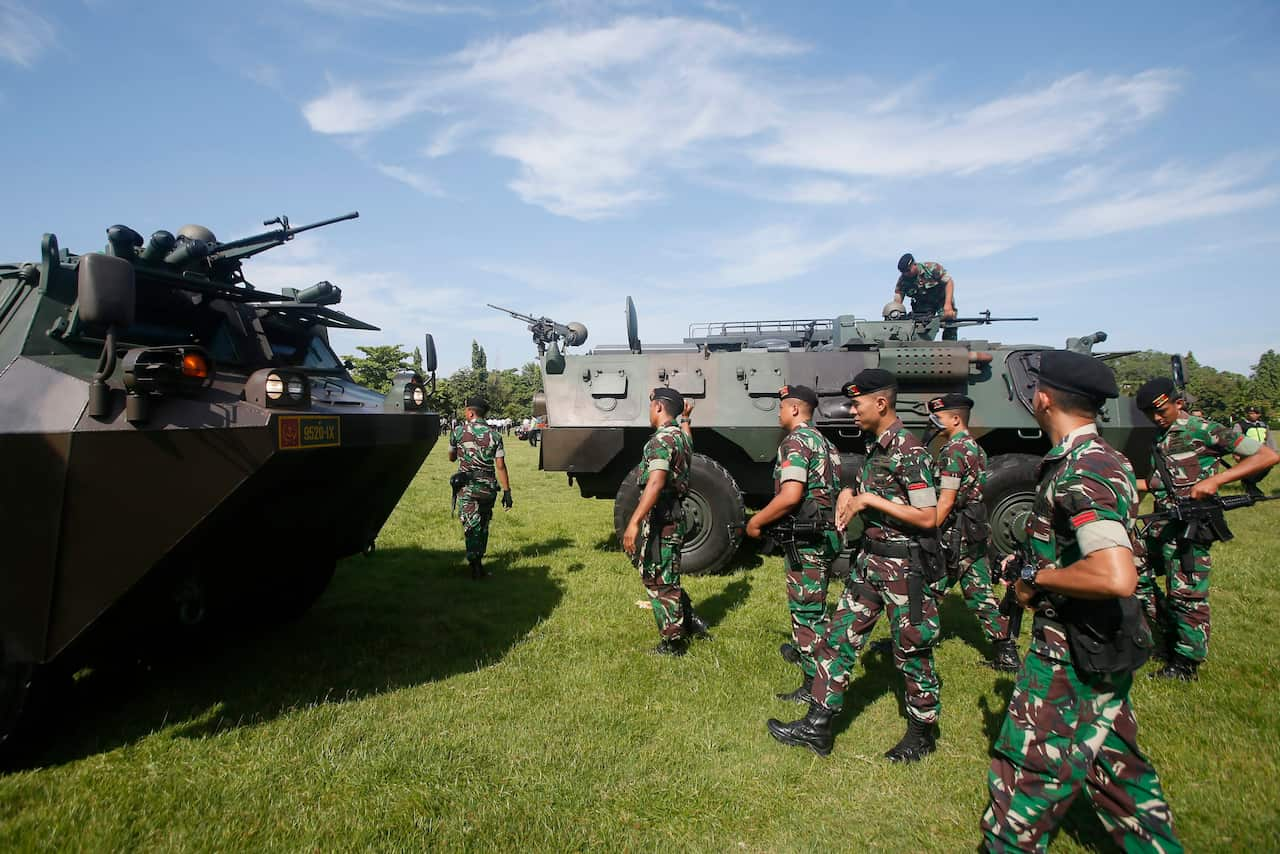General Gatot made a chilling statement to media at a breaking-of-the fast event at Balai Sudirman convention centre in Jakarta on Monday, saying there were "IS sleeper cells" in 33 of Indonesia's 34 provinces.
"In nearly all provinces there are IS cells, but they are sleeping – except Papua," he told the media gathering.
SBS World News has contacted General Gatot's office to confirm what he meant by "sleeper cells".
He revealed the news as hundreds of people were being held hostage by Islamic militants in Indonesia's northern neighbour, the Philippines.
Government forces of the Philippines have been attempting to defeat the militants in Marawi in the southern island of Mindanao. So far, about 60 government troops and more than one hundred civilians have lost their lives in the battle.
Counter-terrorism expert Noor Huda Ismail says IS is a threat to Indonesia.
A 2016 survey by religion research centre found that 7.7 per cent of 1,520 Muslim Indonesian respondents supported radicalism, and a national conducted in May by Saiful Mujani Research & Consulting found that 9.2 per cent of respondents believed Indonesia should be an Islamic state or a Caliphate.
A matter of context
However, Mr Huda says historically speaking, Indonesia "will only see an extremely small number of 'active' cells'," which are usually started by "charismatic and political violence entrepreneurs".
In addition, Mr Huda says General Gatot's comments must be put in context, noting he would be retiring soon and intends to contest Indonesia's general election in 2019.
"He must demonstrate his firm action on security issues before the Indonesian public so he will be eligible for presidential office," Mr Huda said.
The level of trust the Indonesian public have in the military is higher than what they have in the current president, Joko Widodo, by Saiful Mujani Research & Consulting.
Mr Huda says if such IS cells did become active, the Indonesian government would not be able to tackle the issue alone.
"There is a dying need for civil society to get involved actively in this space,” he says, adding schools and parents must promote critical thinking and digital literacy to prevent youth from becoming radicalised.

A picture made available on 05 January 2017 shows Indonesian military officers during Christmas and New Year security preparations in Denpasar, Bali. Source: EPA
Recent terror attacks
Media has reported IS in connection with two of the most recent terror attacks in Indonesia.
Local police told media the suicide bombing that killed three police officers at a busy bus terminal in Jakarta's east last month was linked to IS.
In January 2016, IS claimed an attack that killed four civilians outside a mall in central Jakarta.
A number of terror attacks have occurred in Indonesia over the past decade, with the Southeast Asian militant group Jemaah Islamiyah believed to be a mastermind behind many of them.
Jemaah Islamiyah was said to be behind the Australian Embassy attack in 2004, which killed at least nine people.
The group was also suspected to have carried out the 2002 Bali bombings, which killed more than 200 people, and the 2009 Ritz Carlton-Marriott hotel bombings that killed seven people.










